 Shutterstock
Shutterstock
Many dog owners have noticed their pets eating grass and vomiting shortly afterward, which may seem puzzling but is quite common. While it often raises concerns about potential illness, there are several reasons why dogs engage in this habit, ranging from instinctual behavior to addressing dietary needs. Understanding the underlying causes behind grass-eating and vomiting provides important insights into a dog’s health and well-being. By recognizing these factors, pet owners can better manage their behavior and ensure they remain healthy and happy.
Instinctual Behavior
 Shutterstock
Shutterstock
One of the most common explanations for why dogs eat grass is rooted in their instincts. In the wild, canines like wolves and foxes eat plant material to help purge their digestive systems of parasites or indigestible matter. Even though domesticated dogs don’t have the same survival needs, they still retain many of these instinctual behaviors. Eating grass and vomiting may be a way for dogs to cleanse their systems, eliminating irritants or foreign objects in their stomach. This natural instinct may be why dogs occasionally indulge in this strange habit.
Dietary Fiber Deficiency
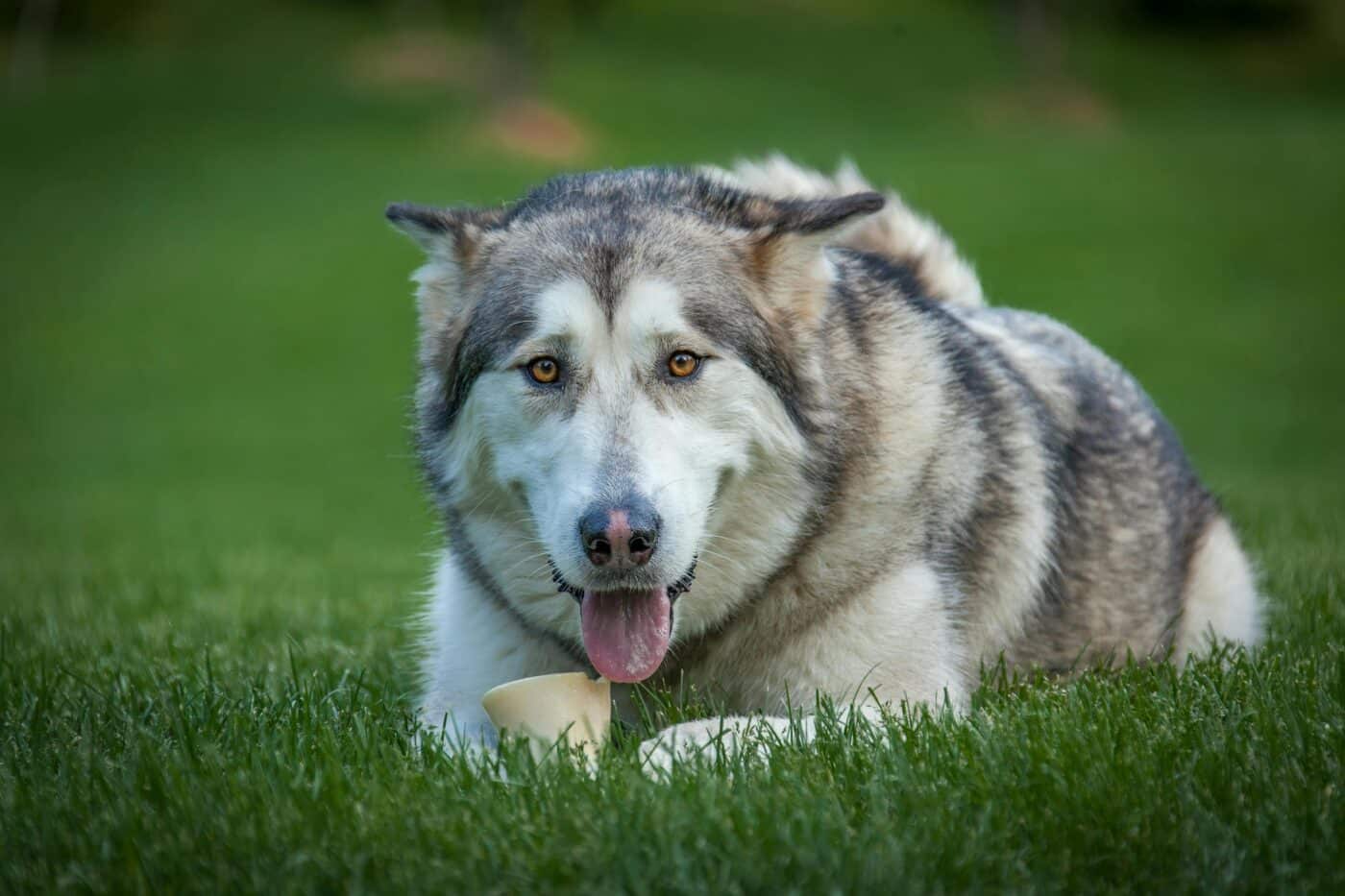 Shutterstock
Shutterstock
Another reason dogs eat grass and then vomit could be related to a lack of dietary fiber. Grass contains fiber that may help a dog’s digestive system function more smoothly. If a dog’s diet is low in fiber, they may seek grass to supplement their intake. However, since dogs aren’t able to digest grass well, it can irritate their stomachs, leading to vomiting. Pet owners who notice their dogs frequently eating grass may want to consider adjusting their dog’s diet to include more fiber-rich foods, potentially reducing the need for this behavior.
Boredom or Lack of Stimulation
 Shutterstock
Shutterstock
For some dogs, eating grass is a way to pass the time or alleviate boredom. Dogs, especially those with high energy levels, need mental and physical stimulation. When a dog is left alone in the yard or isn’t receiving enough exercise or playtime, they may start eating grass out of boredom. This behavior can lead to vomiting as the grass irritates their stomach lining. Providing interactive toys, more exercise, and mental challenges can help reduce grass-eating tendencies caused by boredom or lack of stimulation.
Soothing an Upset Stomach
 Shutterstock
Shutterstock
Dogs may also eat grass to soothe an upset stomach. Some veterinarians believe that dogs instinctively eat grass when feeling nauseous or having indigestion. Eating grass stimulates vomiting, which can help relieve nausea or clear the stomach of irritants. This behavior is a form of self-medication, allowing dogs to use vomiting as a way to feel better. If your dog seems to eat grass and vomit when they appear unwell, it could be their way of trying to alleviate discomfort.
Evolutionary Remnant
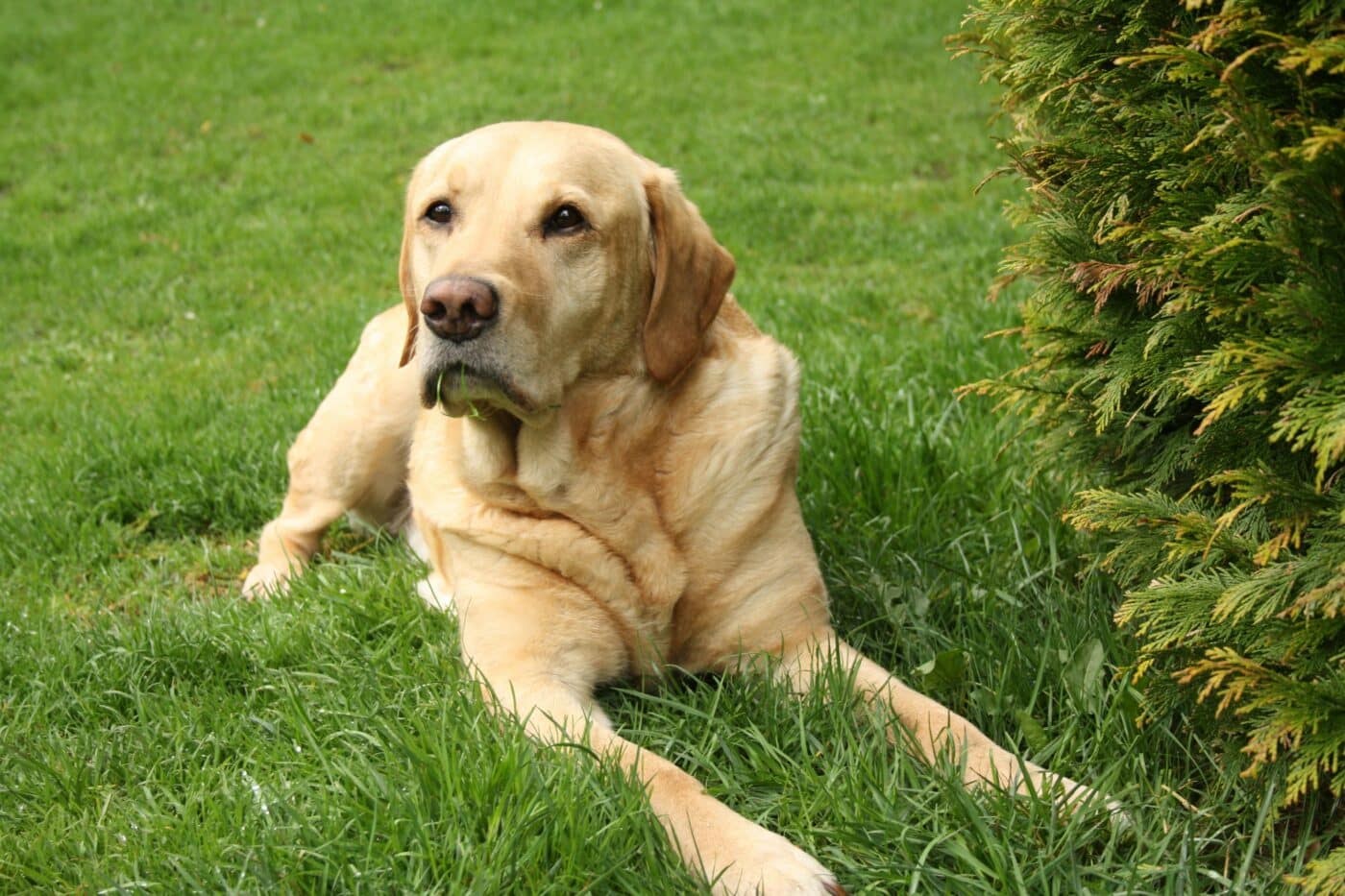 Shutterstock
Shutterstock
Dogs are descendants of wild ancestors like wolves, who consumed the entire bodies of their prey, including plant matter found in the stomachs of herbivorous animals. Eating grass may be an evolutionary remnant of this behavior, where dogs are drawn to plant material even though their diet is primarily carnivorous. Although domesticated dogs no longer rely on grass for nutrients, the behavior persists, potentially triggering vomiting when their systems can’t handle the plant fibers as efficiently as their ancestors once did.
Attention-Seeking Behavior
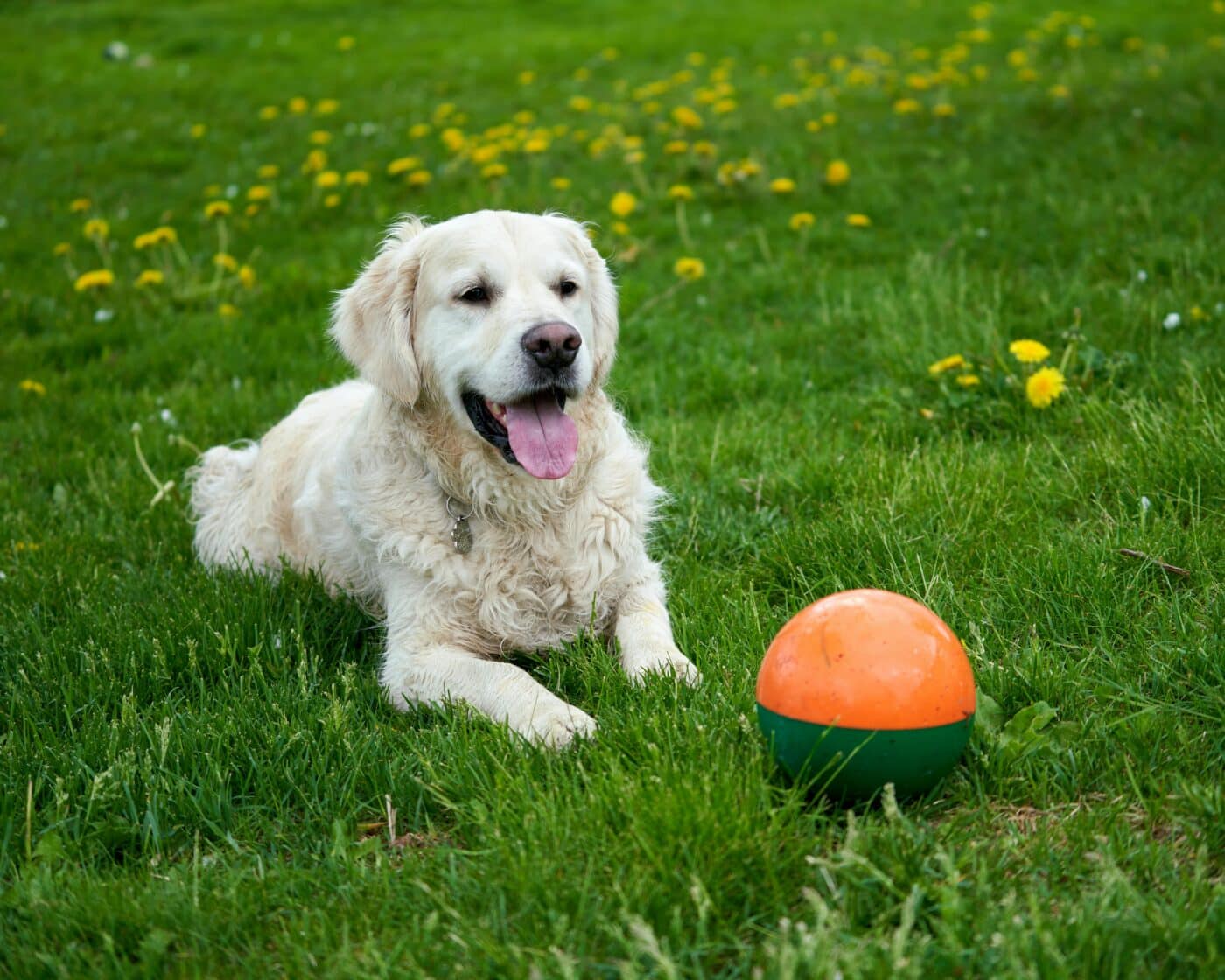 Shutterstock
Shutterstock
Sometimes, dogs eat grass to get attention from their owners. If a dog notices that eating grass results in extra care or concern from their owner, it may repeat the behavior to gain attention. Dogs are highly social animals, and if they feel neglected or bored, they may resort to behaviors like grass-eating and vomiting to engage with their owners. Ensuring that dogs receive enough attention, play, and interaction can help reduce the likelihood of grass-eating as a way to seek attention.
Anxiety or Stress
 Shutterstock
Shutterstock
Dogs, like humans, can experience anxiety and stress, and eating grass may be a coping mechanism for them. Stressful situations, such as changes in routine, moving to a new home, or the arrival of a new pet, can lead to anxiety in dogs. In response, some dogs may turn to grass-eating to self-soothe. This behavior can trigger vomiting, especially if the dog consumes too much grass too quickly. Reducing stressors and providing a stable, calm environment can help alleviate anxiety-related grass-eating behaviors.
Lack of Nutrients
 Shutterstock
Shutterstock
In some cases, dogs may eat grass because they lack essential nutrients. Dogs, especially those on poor-quality or imbalanced diets, may instinctively seek grass to fill nutritional gaps. Grass contains some vitamins and minerals, although it is not a substitute for proper canine nutrition. If your dog regularly eats grass, it may be worth evaluating their diet to ensure they receive all the necessary nutrients. Improving the quality of their food may reduce the urge to eat grass and vomit.
Curious Exploration
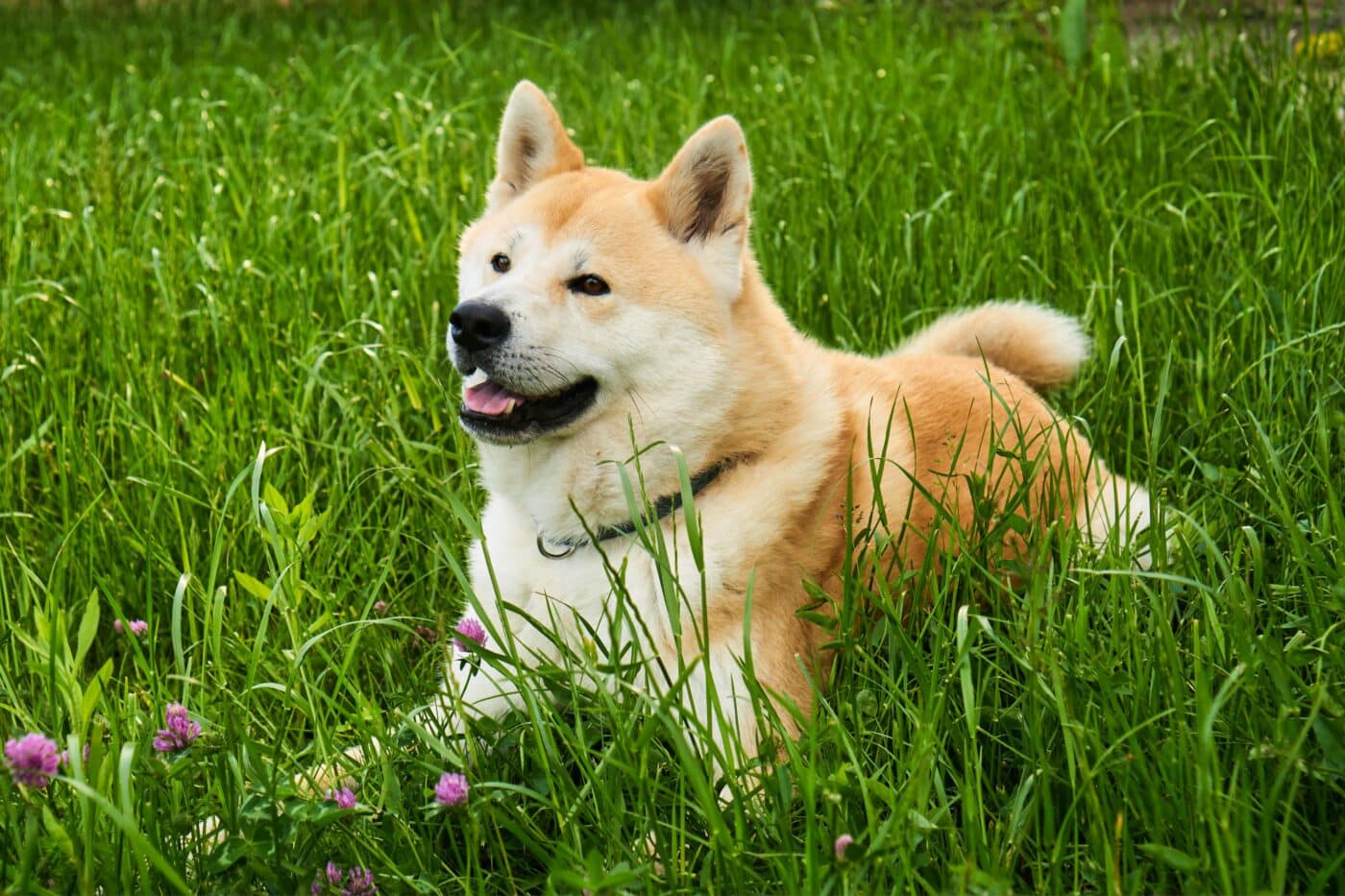 Shutterstock
Shutterstock
Dogs are naturally curious creatures, often exploring the world through their mouths. Eating grass can simply be part of their natural exploration, especially for puppies and young dogs still learning about their environment. However, since grass is indigestible for dogs, it can lead to gastrointestinal upset and vomiting. While this behavior is usually harmless, owners must monitor their dog’s grass-eating habits to ensure they’re not consuming harmful substances like pesticides or chemicals that could pose a health risk.
Sensory Satisfaction
 Shutterstock
Shutterstock
Some dogs enjoy the sensory experience of eating grass—the texture, smell, and taste may appeal to them. This behavior can be similar to how some dogs enjoy chewing on sticks or playing with certain toys. However, since grass is not easily digestible for dogs, it can irritate their stomach, leading to vomiting. Dogs that enjoy the sensation of eating grass may need alternative outlets for sensory stimulation, such as chew toys or safe, dog-friendly plants to nibble on.
Seasonal Behavior
 Shutterstock
Shutterstock
Dogs may be more inclined to eat grass during certain times of the year. Fresh, green grass that appears in the spring and summer may be particularly appealing to dogs due to its texture, moisture content, or even the change in scent. The seasonal nature of grass-eating behavior can sometimes be tied to changes in a dog’s environment or mood, as they may be more active and curious during warmer months. Providing alternatives like safe, edible plants or redirecting their attention during outdoor play can help curb seasonal grass-eating habits.
Digestive Irritation
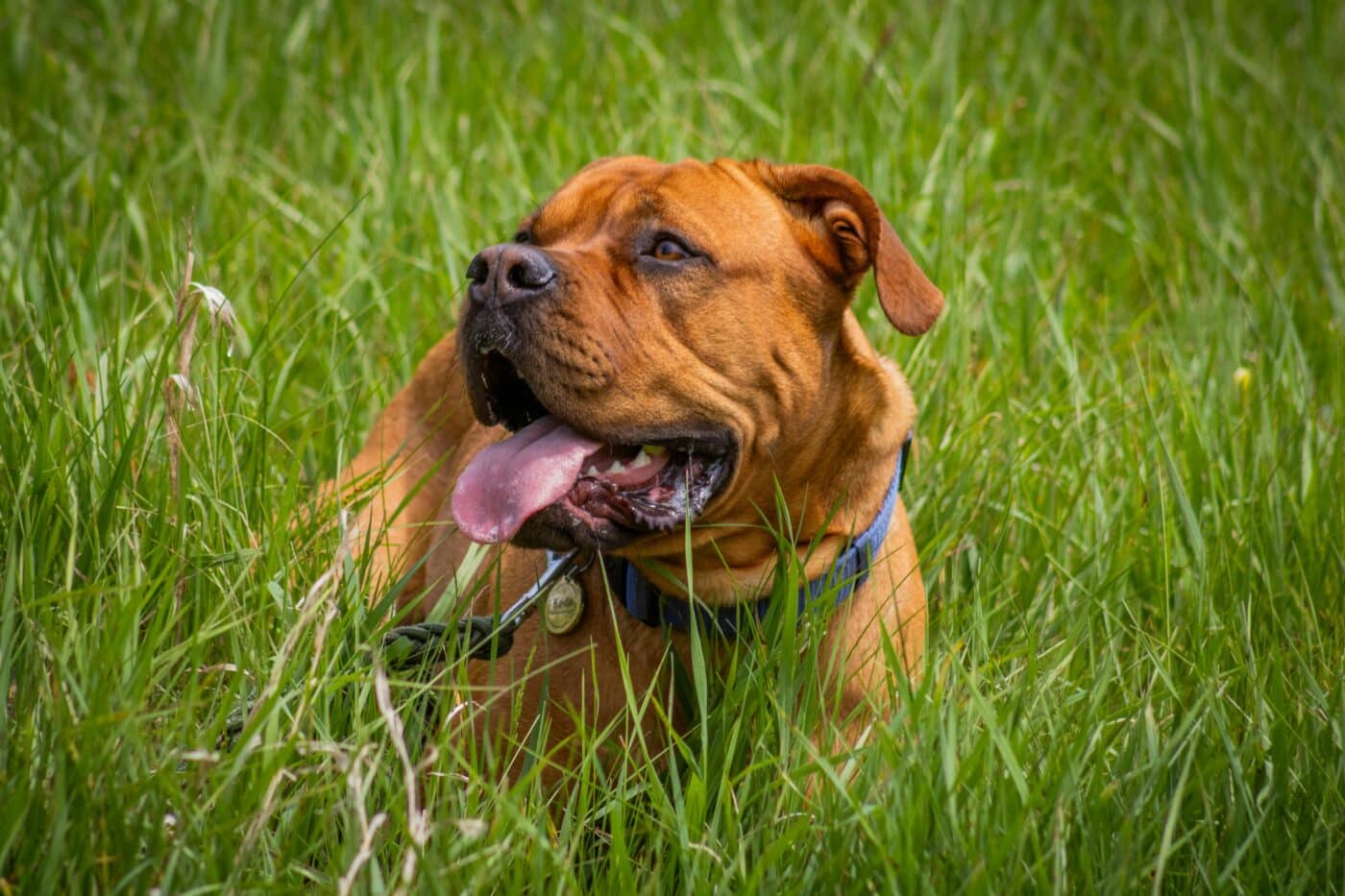 Shutterstock
Shutterstock
In some cases, dogs may eat grass simply because their digestive system is irritated, and they instinctively seek a way to alleviate the discomfort. The grass may act as a mechanical irritant, triggering vomiting to clear foreign objects, parasites, or toxins. This form of self-treatment is a natural response to digestive upset, and while the occasional grass-eating episode is usually not a cause for concern, frequent or excessive vomiting should prompt a visit to the veterinarian to rule out any underlying health issues.
Understanding Grass-Eating and Vomiting in Dogs
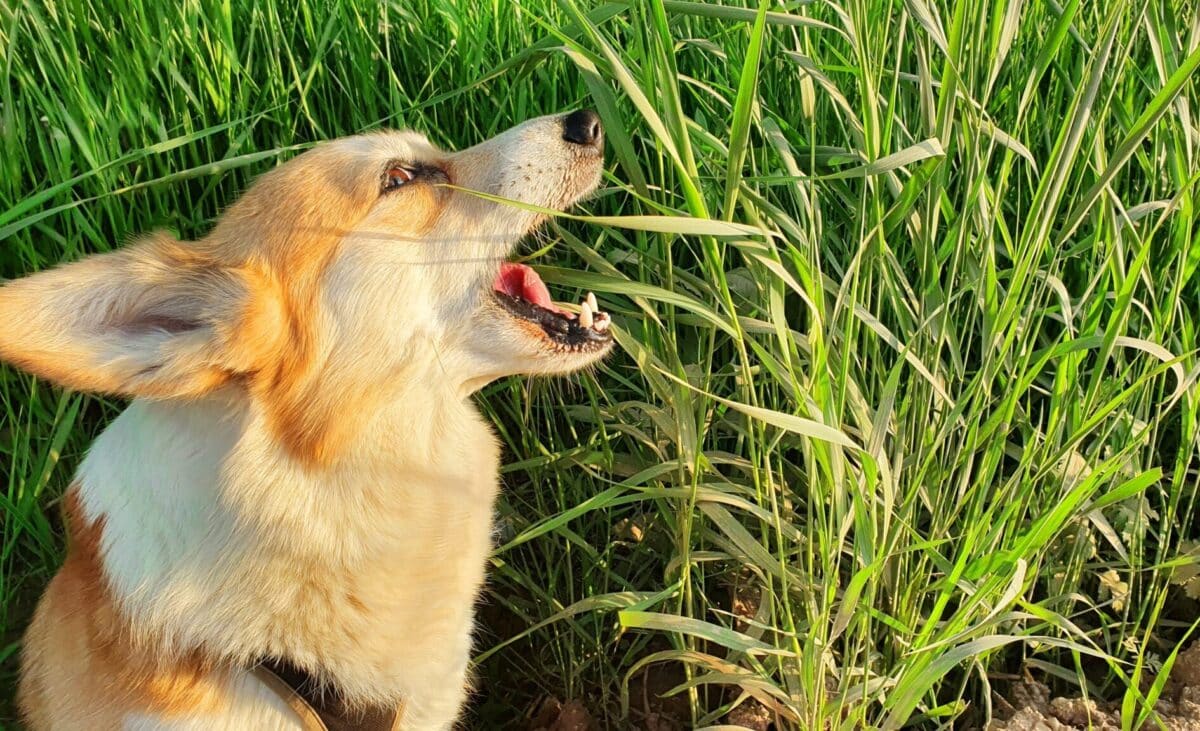 Shutterstock
Shutterstock
While seeing your dog eating grass and then vomiting can be alarming, it’s often a natural and instinctive behavior with various explanations. From addressing dietary deficiencies and soothing an upset stomach to satisfying curiosity and relieving boredom, dogs have multiple reasons for this common behavior. Understanding these factors can help pet owners manage their dog’s grass-eating habits and meet their pet’s dietary, emotional, and physical needs. By paying attention to the underlying causes, you can better support your dog’s overall well-being and prevent potential health issues related to this behavior.
 Toledo, United States.
Toledo, United States.